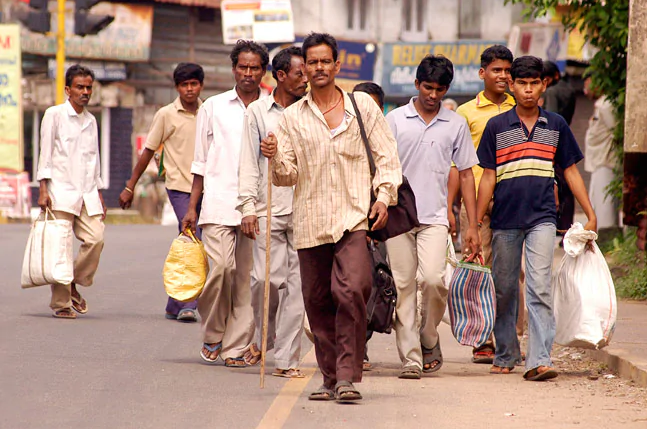Bhubaneswar: A sudden imposition of lockdown in the country has stranded lakhs of Odia migrants in different parts of the country hitting the regular cycle of migration to the state and putting the migration based rural economy at stake.
As per migration experts from the state, summer is often the time for the migrants to come back to their native places due to marriage ceremonies and harvest season that have now been hit by the lockdown as many are now stranded in Gujarat, Maharashtra and Kerala.
“This is the time when close to 60 per cent of the migrants stay in Ganjam due to family functions and other reasons. They used to bring their savings to their householders here. However, the sudden imposition of lockdown has kept their families deprived while they are also running out of cash,” said Loknath Mishra, a migration observer from Ganjam district.
According to Mishra, a large chunk of economy in the district is dependent on migration. “The flow of cash comes with the migrants who come back homes. Due to the lockdown, many are stranded in the state while others are stranded in vulnerable states like Kerala and Maharashtra,” he said.
He also added that the flow of cash to the state from them is likely to be hit while their prospects of jobs in outside states are also threatened.
Civil society members who work with migrants claim that many unorganised migrant workers are now suffering during the lockdown due the private channel they adopted for migration.
“Many migrants move out of the state without registration. Many of them hesitate to take assistance from the government to hide their details. Many do this as they anticipate threat arising out of this to their masters and the agents who helped them,” said Ghasiram Panda, Programme Manager, ActionAid, Odisha. Panda is now working with migrant workers in Subarnapur district.
However some have also appreciated certain works undertaken by the government to redress the woes of migrants in the state. Some district administration, on the other hand, claim that their regular work with migrants gave them an upper hand in managing migrants and COVID-19.
“We used to maintain registers of migrants going out in panchayat levels. Such move to maintain records helped us trace the migrants during COVID. As we had all the contact details it helped us to reach out to them and take preventive measures on time,” Ganjam Collector Vijay Amrut Kulange said.
NGOs working with migrants also appreciated the efforts of the government to form special panels in each district with members from the government and civil societies to act together on migrants’ woes.
Manish Kumar, OP
